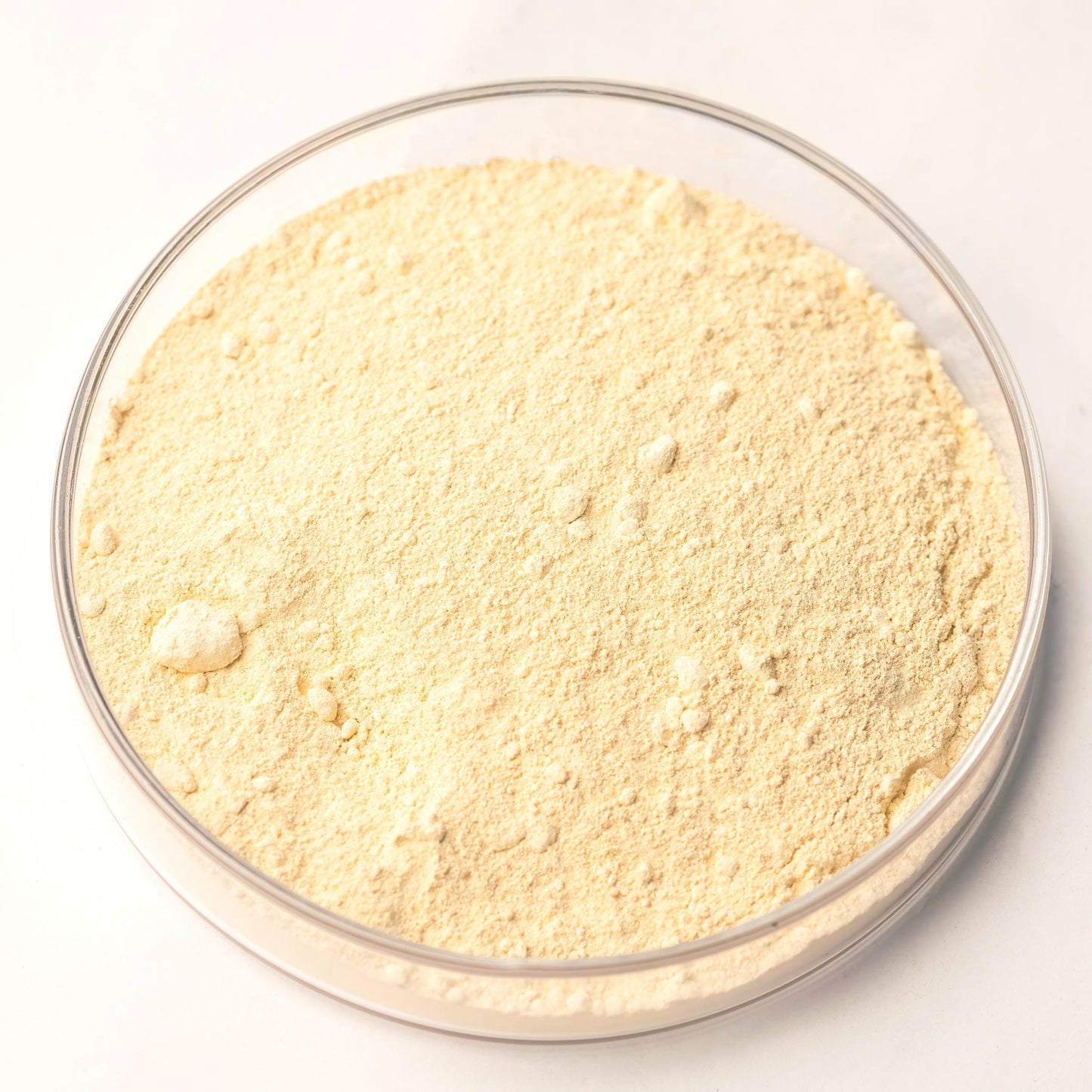Lead-Tin Yellow
Lead-Tin Yellow
Couldn't load pickup availability
Share

See Health Information
Description
Lead-Tin Yellow Type I is a bright, opaque lemon-yellow pigment made by heating lead oxide with tin dioxide. Type I is slightly cooler and paler than Type II, leaning toward a crisp, clean lemon hue with excellent opacity and covering strength.
It is dense and buttery in application, mixes beautifully with vermilion, ochres, and earth pigments, and is especially valued for its ability to create glowing highlights and luminous flesh tones. In fresco and oil it provides unmatched brilliance compared to natural earth yellows.
History
This pigment was one of the first synthetic yellows in Europe, used extensively between the 14th and 17th centuries. It appears in works by Giotto, Titian, and Vermeer, among many others. Its permanence and opacity made it a favorite for tempera panel painting, fresco, and early oil techniques.
By the 18th century, Lead-Tin Yellow fell out of use, supplanted by Naples Yellow and later Chrome Yellow. For centuries the method of production was lost, and the pigment was forgotten—sometimes misidentified in paintings as massicot or Naples Yellow. It wasn’t until the 20th century that chemists rediscovered its true composition and restored it to use for historical reconstructions and conservation.
Today, Lead-Tin Yellow Type I is once again available, prized by conservators and artists for its historical authenticity, stability, and unmatched glowing lemon hue.
Health and Safety
Warnings:
CANCER AGENT.
INHALATION MAY PRODUCE CANCER.
EXPOSURE MAY CAUSE HARM TO THE PREGNANT PEOPLE OR DEVELOPING FETUS.
INHALATION MAY CAUSE LUNG DAMAGE.
CONTAINS LEAD.
Precautions:
Keep out of reach of children and pets.
Do not consume.
Not for cosmetic or food usage.
Do not spray apply.
For further health information contact a poison control center.
Use care when handling dry pigments and avoid dust formation.
Use particular caution with fibrous, fine, or toxic pigments.
Do not eat, drink, or smoke near dry pigments.
Avoid breathing in pigment dust and use a NIOSH-certified dust respirator with sufficient rating for dry pigment.
Wash hands immediately after use or handling.
If dust is likely, always wear protective clothing to keep out of eyes, lungs, off skin, and out of any contact as well as keep area ventilated.
This product may contain chemicals known by the State of California to cause cancer, birth defects, or reproductive harm.
Warnings and bottle information are abbreviated.
Pigment Information
Pigment Type: Synthetic Inorganic
Chemical Composition: Pb₂SnO₄ (Lead Stannate, Type I)
Suitable Mediums: Oil, Watercolor, Tempera, Fresco, Acrylic, Encaustic
Lightfastness: Excellent
Opacity: Opaque
Other Names: Giallorino, Yellow Frit, Renaissance Yellow
Color Index Code: PY46

